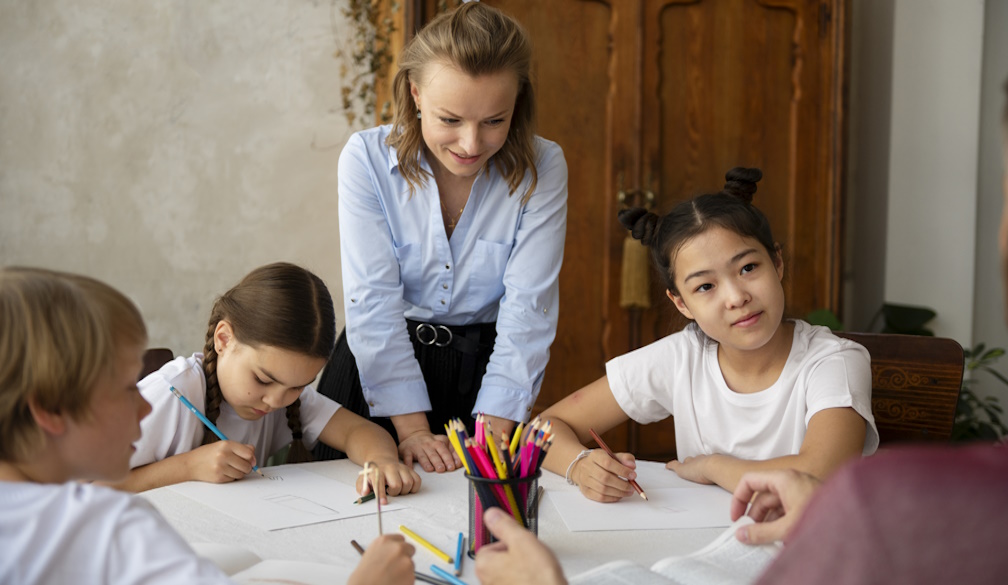The Importance of School Readiness Assessment in Early Childhood Development

Introduction
Starting school is a major milestone in every child’s life and one that sets the foundation for future learning success. For parents, the transition from preschool to formal schooling can be both exciting and daunting. Questions like “Is my child ready for school?” or “What skills should they have before starting?” often arise.
That’s where a school readiness assessment becomes invaluable helping families understand a child’s strengths, developmental needs, and preparedness for the challenges of a structured classroom environment.
What Is a School Readiness Assessment?
A school readiness assessment is an evaluation process that examines a child’s physical, emotional, cognitive, and social development to determine how prepared they are for school. Rather than being a test, it’s a holistic observation that helps educators and parents identify areas where additional support might be needed.
The goal is not to label a child as “ready” or “not ready,” but to create strategies that foster confidence, independence, and curiosity before they enter kindergarten or prep.
Why School Readiness Matters
Children develop at different rates, but starting school before they’re ready can lead to stress, anxiety, and disengagement. Research shows that children who begin school with a solid foundation in emotional regulation, language, and social interaction are more likely to enjoy learning and build positive relationships with teachers and peers.
A school readiness assessment ensures that each child transitions into this new phase of life feeling capable and supported.
Key Areas Evaluated During a School Readiness Assessment
1. Cognitive and Language Skills
Children need basic skills in listening, following instructions, and communicating their thoughts clearly. Assessments look for:
- Ability to recognise shapes, letters, and numbers.
- Understanding of simple concepts like big/small or same/different.
- Capacity to express needs and ask questions.
2. Emotional Regulation
Managing emotions is essential in a classroom setting. Educators assess whether a child can:
- Cope with separation from parents.
- Manage frustration or disappointment.
- Follow routines independently.
3. Social Interaction
School involves teamwork, sharing, and cooperation. Readiness checks examine:
- How children interact with peers.
- Their willingness to participate in group activities.
- Ability to respect personal space and classroom boundaries.
4. Physical Development
Fine and gross motor skills are critical for activities like writing, cutting, and playing. Assessors observe coordination, balance, and overall stamina.
5. Independence and Self-Care
A vital part of readiness is a child’s ability to manage simple tasks alone such as dressing, toileting, or packing their bag. This independence builds confidence and self-esteem.
The Role of Parents and Educators in School Readiness
Preparing a child for school isn’t just about academics it’s about nurturing confidence and curiosity. Parents can support readiness at home by:
- Encouraging conversations and storytelling.
- Promoting play-based learning through puzzles, crafts, and games.
- Establishing regular routines for sleep and meals.
- Teaching problem-solving through everyday experiences.
Preschools and educators play an equally important role. Through structured play and guided activities, children develop essential emotional, social, and literacy skills that make the school transition smoother.
The Benefits of Professional Assessment
Professional school readiness assessments provide insights beyond what parents may observe at home. They help:
- Identify developmental delays early.
- Tailor learning activities to suit each child’s needs.
- Boost parental confidence in choosing the right school start time.
- Create a smooth, supportive transition from early learning to formal education.
For many families, this assessment provides reassurance and guidance, ensuring that their child starts school at the best possible stage of development.
How School Readiness Programs Support Children in Camden
In communities like Camden, quality early learning centres emphasise readiness through tailored programs that combine play, creativity, and structure. Local educators integrate emotional intelligence, fine motor activities, and pre-literacy skills into everyday routines all key factors in determining readiness.
A well-designed program ensures every child develops resilience, curiosity, and social awareness, the true building blocks of lifelong learning success.
Questions Parents Commonly Ask About School Readiness
How Early Should I Have My Child Assessed?
Assessments are typically conducted in the year before school entry, around ages 4–5. Early evaluation allows enough time to address any areas needing extra support.
What If My Child Isn’t Fully Ready Yet?
That’s completely normal! Every child progresses at their own pace. The goal of assessment is to identify strengths and growth opportunities not to rush readiness.
Does Assessment Involve Testing or Grading?
No. It’s observational and play-based, focusing on how a child interacts, communicates, and problem-solves in natural settings.
How Can I Support My Child After Assessment?
Follow the recommendations given by educators such as engaging in language games, improving routines, or enhancing fine motor skills through art and play.
Why Local Expertise in Camden Matters
Local educators understand the specific developmental milestones and community expectations for schools in the Camden area. They provide families with personalised feedback and readiness strategies that align with local school curricula.
This community-based approach ensures that every child receives the right balance of nurturing and academic preparation before starting school.
Conclusion
Every child deserves a confident and positive start to their educational journey. A school readiness assessment provides valuable insight into your child’s emotional, physical, and cognitive growth empowering families to prepare effectively for the school years ahead.
By identifying strengths, addressing challenges, and building essential life skills early, families can ensure that their children step into school feeling happy, capable, and ready to learn.
Because readiness isn’t just about learning letters and numbers it’s about fostering a lifelong love for discovery, resilience, and confidence.

